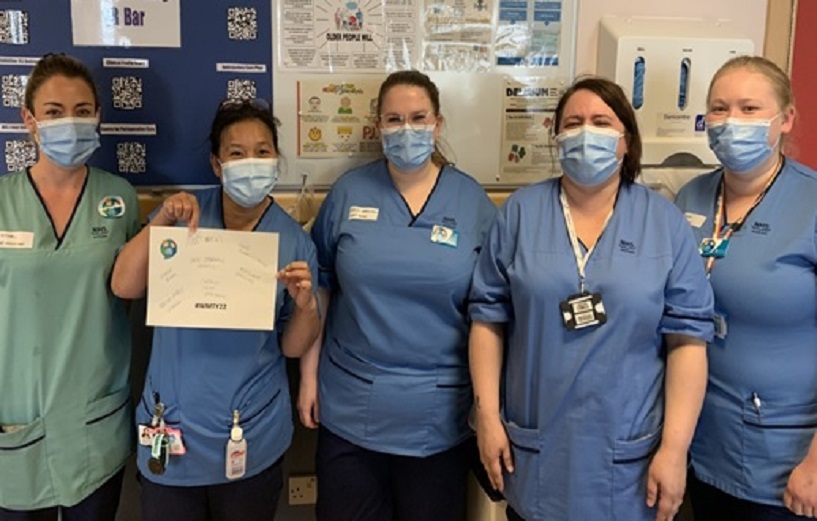The Surgical Acute Frailty Team at Ninewells Hospital, in NHS Tayside, are making sure patients’ needs and wishes are discussed, acted upon and at the heart of what they do each day, by firstly asking their staff ‘What matters to you?’
‘Good leadership within healthcare is ensuring that your team’s wellbeing is protected as well as to improve their experiences of the health and care system’ (NMC, 2018).

The What Matters To You (WMTY) approach is a fantastic platform to ensure that our patients’ needs and wishes are discussed, acted upon and at the centre of what we do.
We are all aware of the hardships put upon our healthcare professionals, especially after the difficulties experienced by all during the covid pandemic.
To ensure that we can help our staff continue to provide the best possible care to our patients, we felt that this year’s WMTY22 day should focus upon our staff – after all, we cannot expect our staff to ask patients ‘what matters to you?’ if we do not ask what matters to our staff first.
Initially, there was some hesitation about how this would be received across the surgical floor – would it produce negative comments and open ‘a can of worms’. With the support of the lead surgical nurse and senior nurse, we felt this would inspire and display the genuine regard we hold for all our hard working healthcare professionals involved in caring for patients.
By asking staff this simple yet effective question, our aim was that this would then enable and empower them to go and ask patients the same question in many different ways.
On 9 June 2022, a brief presentation on WMTY was given to ward based staff across the unscheduled care surgical floor and included all members from the various disciplines.
The presentation was a brief talk on the importance of WMTY as a person centred care approach, and how this can be embedded in daily patient care. After the presentation, a blank space questionnaire with the WMTY logo was given out to staff.
Once staff had time to think and respond to the WMTY questionnaire, they were asked to place it anonymously into a sealed box. It was a particularly busy day across the wards; however, despite the challenges of a busy clinical environment, 49 responses were received.
These responses were then broken down into six key themes – communication, teamwork, staffing, patient centred care, leadership and family/personal. Interestingly, 25% of comments highlighted positive team work, emphasising that our clinical teams work well together and value a supportive environment.
Teamwork and the importance of a supportive team was highlighted throughout, with comments often referring to the ‘work family’.
When mentioning patient centred care, staff clearly wanted to ensure their patients received the best possible care and that their individual needs were met, reinforcing their continued passion for the profession despite difficult capacity challenges currently.
The importance of being heard in the workplace was also evident, and it was clear that staff felt genuinely supported in their day-to-day job by the leadership team.